One of the most moving, meaningful moments that I observed at the recent Great Homeschool Convention actually happened more than once. After the Classical panel (featuring minds like Andrew Kern, Martin Cothran, Carol Reynolds, Christopher Perrin, and Adam Andrews) everyone stood together and sang the Doxology. Sarah Mackenzie also asked everyone in her sessions (at least the ones I was in) to sing The Doxology together.
The Doxology (or Old 100th) is a four line hymn. It is old. It is simple.
It is profound.
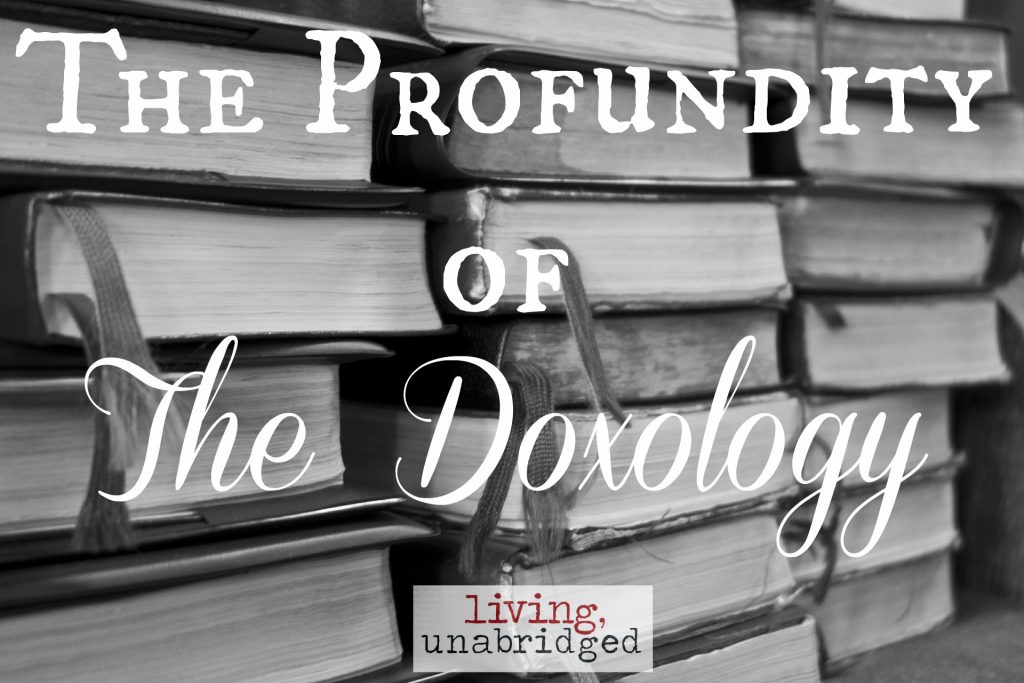 Why Singing The Doxology is Profound
Why Singing The Doxology is Profound
For anyone who attended these sessions at the GHC, I have heard most, if not all, mention how moving they found the experience of singing together. The seminars are thought-provoking and deep (and often funny). The speakers are amazing resources to the homeschool community at large.
But one of the most meaningful takeaways was the singing of a somewhat unremarkable poem.
Why?
I have two negative reasons and a positive to share with you.
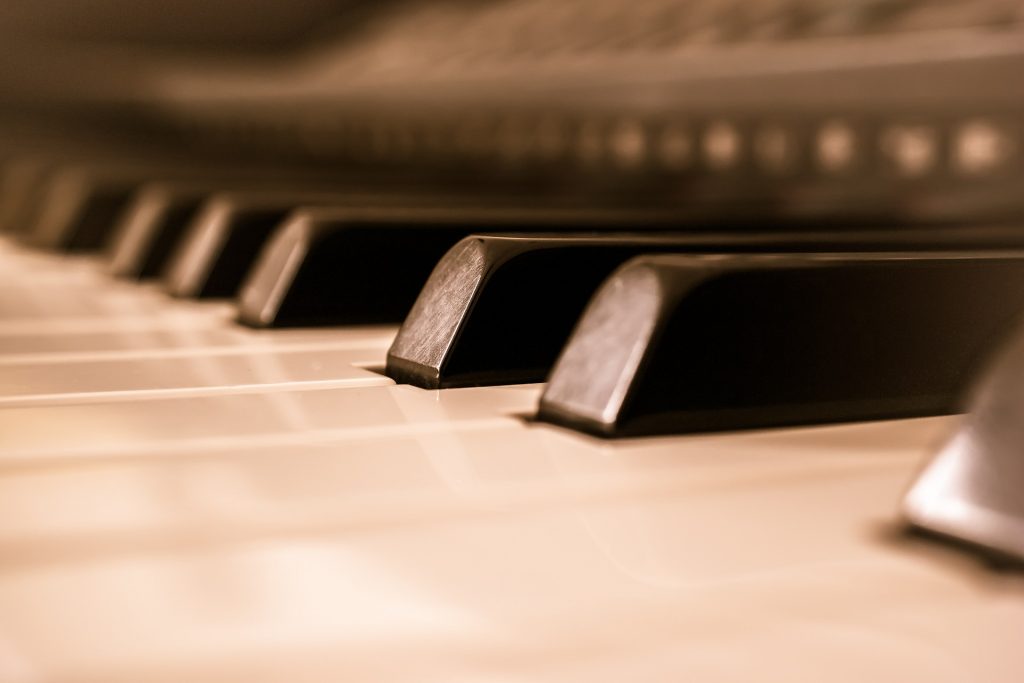 1. Public Singing is Uncommon
1. Public Singing is Uncommon
You don't have to read much History, or know very much about music, to know that singing together used to be much more common than it is today. Now our culture is used to being entertained: we wait for others to sing to us.
As we've abandoned the joy of corporate (by which I mean, public) singing we've outsourced music to "the professionals". We don't sing together, we listen to Singers. Am I saying that listening to other people sing to us is wrong? No, of course not. I have favorite musicians and albums just like you do. I'm just saying we've lost something, too.
Some 56% of people, according to one study I've seen, will admit to singing in their cars. (I suspect that number is actually underestimating the reality.) Another high percentage of people admit to singing in the shower.
Why do we sing alone but not together? Singing is a vulnerable activity. And we don't do vulnerable any more, at least, not well. We have too many other amusement and entertainment options to consider getting together and singing or playing instruments just for the joy of it.
As I thought about what used to happen (groups of people singing or playing their own music) and what we have now, I could only come up with one event where people still sing together outside of a church: ballgames. Yes, we still sing "Take Me Out to the Ballgame" or the National Anthem. Or most people I've seen at my beloved Reds' games do, anyway. It's fun, it's low pressure, and everyone knows all the words (and some people are probably less inhibited thanks to alcohol, but I won't dwell on that).
So, what about the other place where singing together is supposed to be common: church. Well, I think there are a few problems there as well.
 2. Church Music is Deficient
2. Church Music is Deficient
There are two primary deficiencies that I see in churches today (and I am painting with a wide brush here, but humor me for the moment):
- The infiltration of an entertainment mindset
- The clinging to an inadequate traditionalism
The first seems to be common in larger churches (wide brush, remember). These places have outsourced their music to "professionals". There may or may not be a band. The lighting and sound systems might be cooler. The atmosphere is concert like.
And instead of participating, those gathered for the service are listening to the pros sing.
But before those of us at smaller, less entertainment oriented, churches get too smug, I see a common problem in our churches as well: poor quality and clinging to tradition over content. The atmosphere is funeral like.
I am involved in music ministry. I want churches to have high quality music services. And I am a firm promoter and champion of hymns.
But people cannot sing a song they do not know, unless they are taught.
And not all songs, even old ones, are worth learning. Some songs are simply not singable as written. And some are just not worthy of our time because they are vacuous or downright heretical.
So there's a tension there. Wise church members and leaders will try to navigate the road between the entertainment or traditionalist ditches. Whether it's a professional level showcase that leaves out everyone else or an inadequate and amateur fumbling through songs no one knows, either error makes the "worship service" basically meaningless because the focus is wrong.
Churches ought to be the primary exception to the "nobody sings together" reality we live in. (If you're interested in this discussion, do see When Your Congregation Isn't Singing: 15 Questions from Worthily Magnify.)
Which leads me to the positive reason why singing The Doxology together was profound:
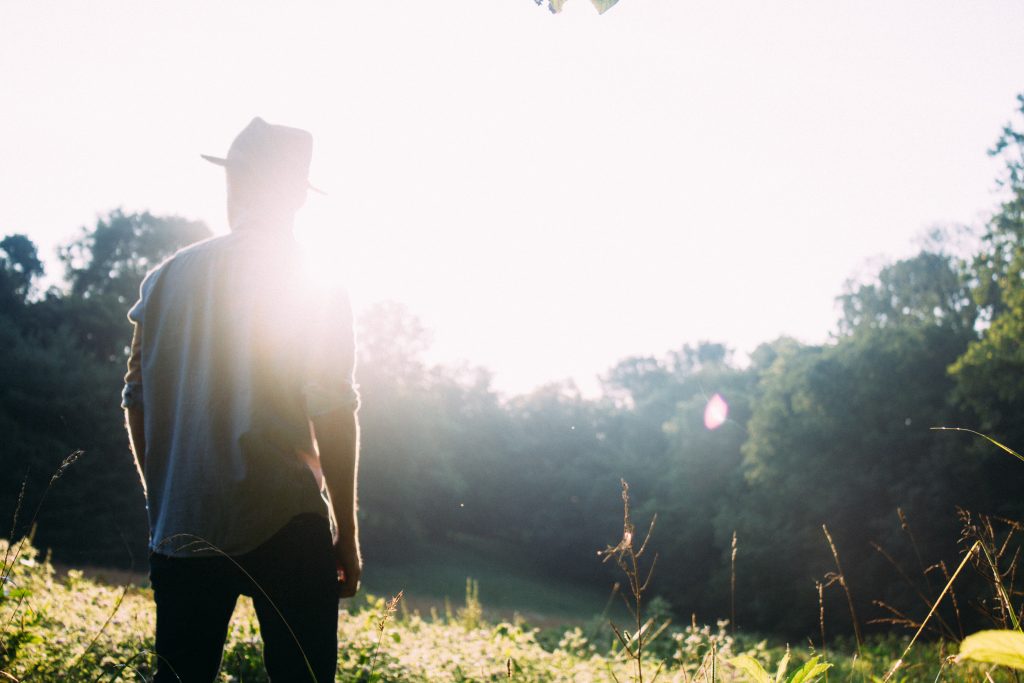 3. The Doxology Fulfills Our Purpose
3. The Doxology Fulfills Our Purpose
Why are we here? For what reason are we on this earth?
As the Westminster Shorter Catechism puts it:
The chief end of man is to glorify God, and enjoy him forever.
I am here to glorify God.
That's what The Doxology does. It, in four simple lines, calls all creation to do what it was created to do.
In the seminar hall at the GHC people from many different walks of life and different religious backgrounds were gathered together. And yes, we have serious differences in our theology. We do not agree on many minor, and some major, points of belief. (And, come to think of it, even though we were mostly homeschoolers, we wouldn't all agree on how, why, when, and where to do that, either.)
And yet, in singing this hymn together, we were all fulfilling our purpose. We were returning praise to the only praiseworthy being. We were, as a group, calling for all creation to do the same.
You see, summarizing all of this doesn't have to be complicated. The Doxology does so in four lines.
I hope to see people singing together in public. Because it's fun. Because it's unifying. Because it returns music to the public sphere where it needs to be.
I hope to see churches remembering what the music service is for: to glorify God. Because it's not about entertainment. Because it's not about just what we like. Because empty tradition is still empty.
But more than those things, I hope to see people fulfilling their purpose on this earth, and into eternity. (And that's one reason we are classically educating our children.)
So, back to the GHC. Why was singing The Doxology with a few hundred friends, acquaintances, and strangers so memorable?
Because when you put people together who understand, or who are at least attempting to understand, why they exist, and these people are willing to be vulnerable in public and confess - in song - that it is not all about us, but about the One who created us, that is profound.

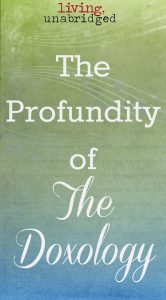
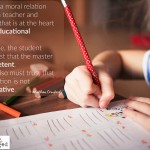


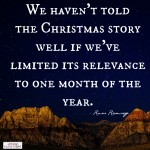


Beautiful, Karen! That was a favorite moment at the convention for me as well.
Several years ago, my husband (an American diplomat) was posted to a developing country that was ruled by a dictator. Of course my daughter and I lived there with him. We'd only been there for a couple of months, and it was our first time living outside the U.S., when the 4th of July came around. The embassy rented out a school and had a big shindig in the courtyard for any Americans who wanted to come. Throughout the whole party, I was conscious of the eyes watching us--local residents had gathered in the stairwells of nearby apartment buildings, where the windows had bars but no glass, and they could see and hear us. At the end, we all sang a song together--not our national anthem, as you might expect, but "God Bless the USA" (aka "Proud to Be an American") by Lee Greenwood. As I stood there in that courtyard, surrounded by well over a hundred other Americans, who in turn were surrounded by oppressed people watching and listening as we celebrated our freedom ... it felt surreal. It was powerful. I have never appreciated my own country more than in those moments, and I have never so badly wanted to just sit down and ask others, "What do you want for your country? What would it take for you to love and celebrate your country as much as we love and celebrate ours? How can we best help you--even if that means leaving you alone?" It was an experience I'll never forget.
Amazing experience - thanks so much for sharing! Music is so powerful.
Excellent! The Doxology was the central idea in my word cloud from the convention. I love the way you've thought through this.